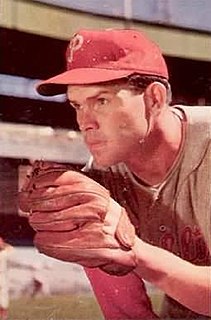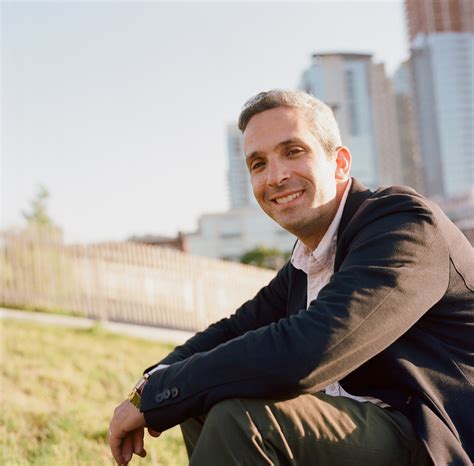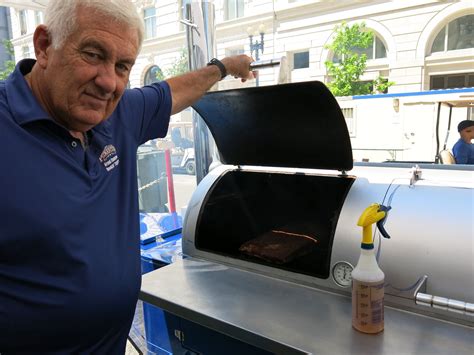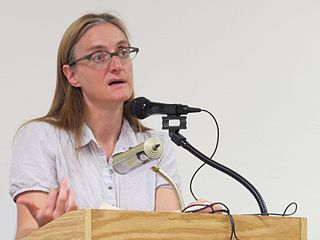A Quote by Michael Specter
'Meat' is a vague term and can be used to refer to many parts of an animal, including internal organs and skin. For the most part, the meat we eat consists of muscle tissue taken from farm animals, whether it's a sirloin steak, which is cut from the rear of a cow, or a pork chop, taken from flesh near the spine of a pig.
Related Quotes
Some meat eaters defend meat eating by pointing out that it is natural: in the wild, animals eat one another. The animals that end up on our breakfast, lunch, and dinner plates, however, aren't those who normally eat other animals. The animals we exploit for food are not the lions and tigers and bears of the world. For the most part, we eat the gentle vegan animals. However, on today's farms, we actually force them to become meat eaters by making them eat feed containing the rendered remains of other animals, which they would never eat in the wild.
I'm a vegetarian. You're a what? I don't eat meat. How can you not eat meat? I just don't. He says he does not eat meat. What? No meat? No meat. Steak? No... Chickens! No... And what about the sausage? No, no sausage, no meat! He says he does not eat any meat. Not even sausage? I know! What is wrong with him? What is wrong with you? Nothing, I just don't eat meat!
As for meat, I'm not going to become vegetarian. I'm telling you that right now. I want me a steak. I want me a pork chop. I want me a lamb chop, even a piece of duck every once in awhile. We used to have ham and salami, all that crazy stuff. I can't eat processed food. I've got to find local farmers and get natural foods.
There is no meaningful distinction between eating flesh and eating dairy or other animal products. Animals exploited in the dairy industry live longer than those used for meat, but they are treated worse during their lives, and they end up in the same slaughterhouse after which we consume their flesh anyway. There is probably more suffering in a glass of milk or an ice cream cone than there is in a steak.
If you like eating meat but want to eat ethically, this is the book for you. From the hard-headed, clear-eyed, and sympathetic perspective of butchers who care deeply about the animals whose parts they sell, the customers who buy their meats, and the pleasures of eating, this book has much to teach. It’s an instant classic, making it clear why meat is part of the food revolution. I see it as the new Bible of meat aficionados and worth reading by all food lovers, meat-eating and not.
A meat temperature gauge is a priceless tool. You can get a very inexpensive one at most hardware or sporting goods stores, which will easily help you determine the temperature of your meat so it is not over or undercooked. Pork is normally done at about 160, internal temperature. Steaks are cooked medium rare from 145 to 150. 165, medium. Well done is about 175, internal temperature.
Most of the food crops raised in the world today are fed to livestock destined for slaughter for us to eat, and most of the water used is used to raise the food crops that are fed to those animals. It has been estimated that, because of the extraordinary amount of grain it takes to raise food animals, if we reduced the amount of meat we eat by only ten percent, that would free up enough grain to feed all the starving humans in the world. So when we choose to eat meat instead of vegetables, we are choosing to take food away from others who are hungry.
There is this really intimate connection that people have with the animals they're going to eat. A lot of people who eat meat say "I would never kill my own animals." Well, that means someone else is doing it for you, ultimately. This is the modern attitude that we have: Somebody else will do that for me. And to me, it just seemed wrong. I wanted to be part of the process of what it meant to eat meat. I wanted to be responsible.





























